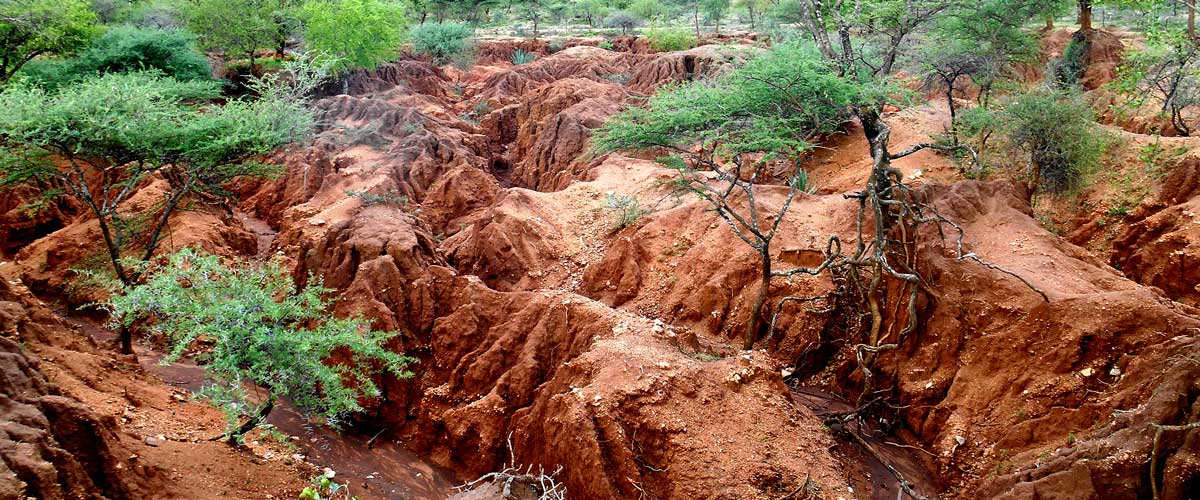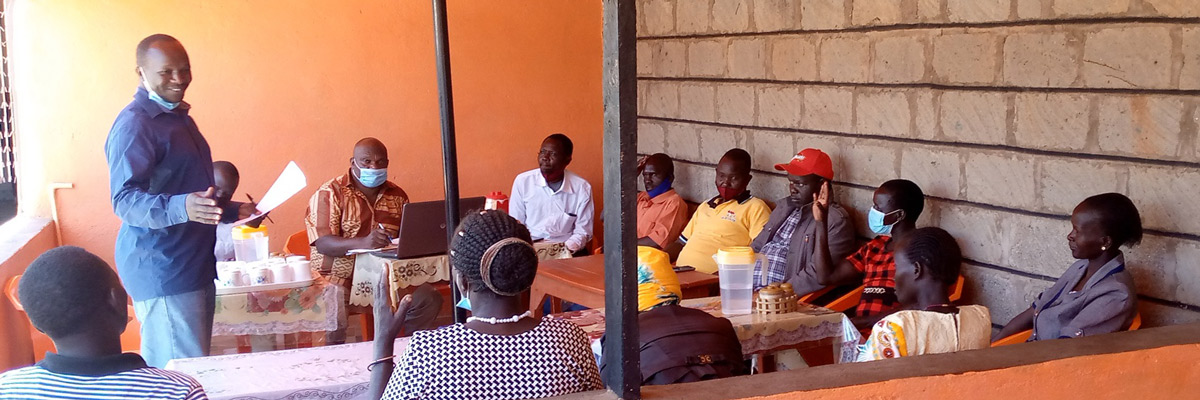
Drylands FRN Readies Roadmap for 2021
Published on:
March 17, 2021
Community of Practice:
On February 2 and 3, the Drylands Farmer Research Network (FRN) held a strategic planning meeting that focused on developing a realistic roadmap to align project activities with the farmer calendar in 2021. The participants included farmers from Kapkorech (Korellach Parak, Kapkitony, and Kaporowo), Senetwo, Chepturnguny, and Cheparer.
The meeting agenda covered a review of progress toward project goals, discussion of emerging problems, prioritization of activities, and allocation of resources. The key output was an implementation plan for constructing sand dams and gabions, a priority activity to be undertaken for eight weeks before the onset of rains. Factoring in the number of farmers involved and how many times they will meet, the farmer groups agreed on a projected number of sand dams to construct. They also agreed to monitor, evaluate, and adapt the ongoing activities as necessary.

Drylands FRN’s early February participatory review and strategic planning meeting drew participants from four groups. Source: Alkamoi Bonface
Other Drylands FRN action items for 2021:
- Continue soil and water conservation activities.
- Emphasize food and nutrition security in crop production—as well as value addition for livestock feed. Given its high price, farmers are looking to strengthen their capacity to process soybean and sunflower crops for poultry feed.
- Establish and manage a profitable commercial tree nursery.
- Develop a business model for poultry-keeping that will ensure reduced cost of production.
- Guide appropriate business models for the drylands community through participatory economic feasibility and social stratification study.
- Construct terracing of at least 20 km total terrace line for each farmer group.
- Strengthen capacity by organizing targeted training, collaborations, and exposure visits to enhance learning.
Seed Systems in the Drylands Holds Focus Groups
Four focused group discussions (FGDs) were organized in West Pokot County—in Chepareria (South Pokot), Serewo (West Pokot), and Alale (North Pokot) —each involved approximately a dozen farmers each. The goal of the FGDs is to deepen understanding of the seed system and explore seed security issues reported in a November 2020 survey of individual farmers. Maize, beans, and sorghum were identified as farmers’ three main food crops. More than 90 percent of farmers buy their maize seeds from the formal sector, while most acquire saved seeds for beans and sorghum from their social networks or local markets.

Farmers from South Pokot participate in an FGD on seed systems at Queen of Sheba Hotel in Chepareria. Source: John Kangogo
Farmers report as their major seed constraints:
- Poor seed quality: adulterated-looking seed, presence of admixtures for the local market seeds, poor germination and low yields, incessant sale of fake seeds as evidenced by poor on-field performance
- Post-harvest handling: seed loss due to storage pests/weevils, bruchid, larger grain borer
- Problematic seed availability: limited seed varieties
- Climate change: unpredictable, little, and often unreliable rainfall because of drought
- Problematic seed access: high prices, farmers at times have no money to buy, certified seeds are far away, forcing farmers to travel if local shops are depleted
- Poor soil fertility: affects production of crops, low yields
- Delayed seed delivery: especially for the county seed aid